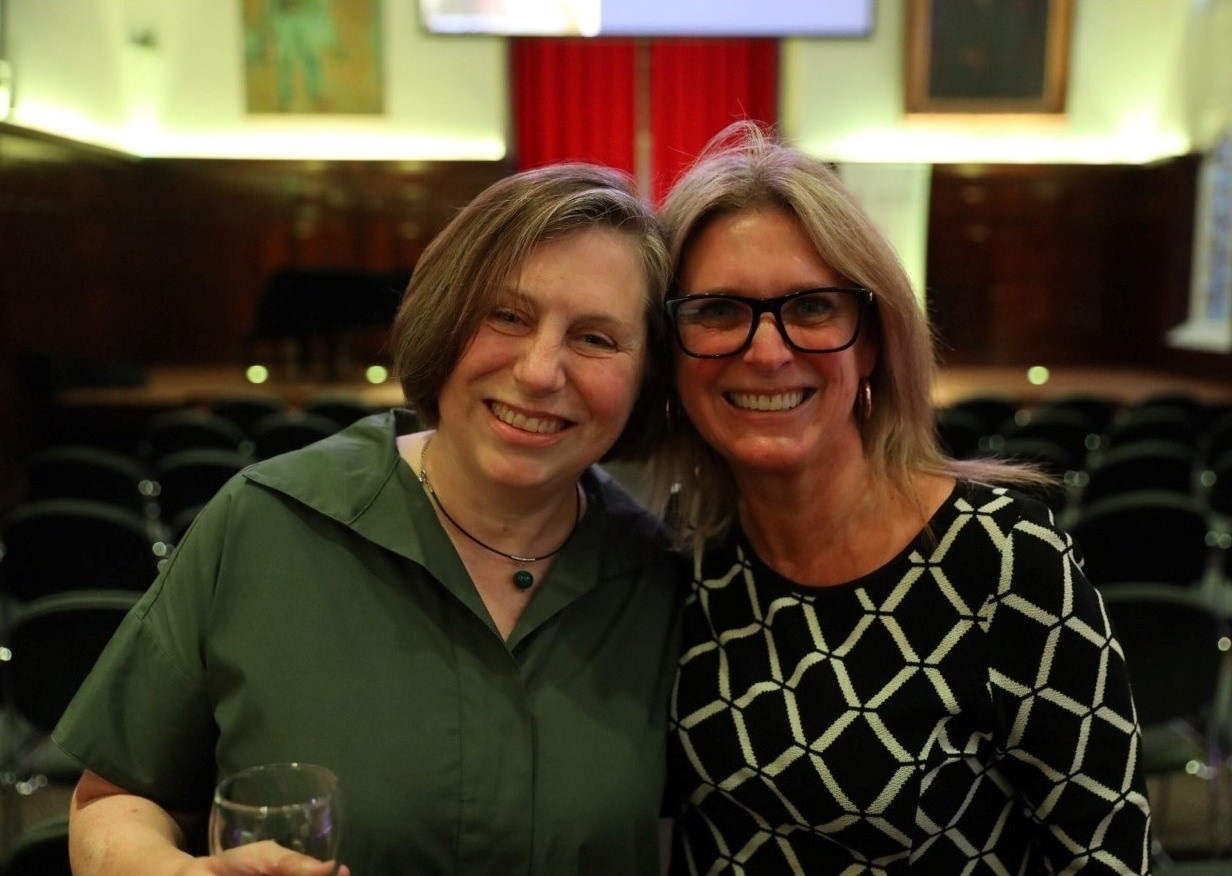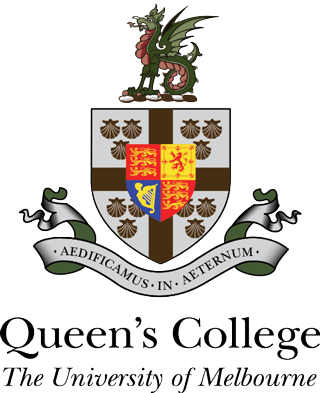‘…with music loud and long’: S.T. Coleridge’s Liberalism, the Cambridge Apostles, and Gladstone’s Essay Society

Professor Phyllis Weliver, left, with Michele Mulder EA to the Master
Professor Phyllis Weliver, Professor of English and Research Institute Fellow at Saint Louis University, and 2024 Macgeorge Fellow, is our second Sugden Fellow, and delivered the Sugden Oration on Wednesday 21 August in the freshly re-furbished JCR.
Professor Weliver’s research explores literature and music in Victorian Britain as being mutually constitutive with a range of nineteenth-century discourses, including constructions of gender, class and political identity.
“My scholarly focus has always been music and literature, then I add some kind of intellectual history to it. This current work has grown out of a book I published about the salons hosted by the daughter of the long-standing British prime minister, William Gladstone. (Mary Gladstone and the Victorian Salon: Music, Literature, Liberalism, Cambridge University Press, 2017). When I had finished it, I realised I had not done talking about liberalism and music and so I thought I would do a larger history.”
Professor Weliver’s talk set out poet-philosopher Samuel Taylor Coleridge’s ideas about music, literature, and what would become liberalism, and traced their spread through influential undergraduate conversation societies in England- the Cambridge Apostles and Gladstone’s Essay Society at Oxford. Professor Weliver outlined Professor William Lubenow’s thesis in his 1998 Cambridge University Press book, The Cambridge Apostles, 1820-1914, tracing the place of liberal thought and its subsequent spread through the Cambridge Apostles. Later Apostles included such figures as F D Maurice, Richard Trench, James Clerk Maxwell, Lytton Strachey, E M Forster, and John Maynard Keynes.
“We know liberal ideas were spreading from the Apostles, but what is new is thinking about the role of music in all this and also the way Gladstone’s Essay Society is linked into these ideas. What I’m interested in is what they thought music was. In order to recover this ‘idea of music,’ it’s necessary to build out the historical context of an idea, to think about how it was realised, and then how it moved and changed over time. In my work, I turn to how literature discusses and interacts with such ideas, and then I also dig into the archives. In this case, unpublished, manuscript records of the Cambridge and Oxford societies tell us what they talked about and what different members thought about the topics. This helps to answer what is often a challenging question: namely, how is an idea developed in a social setting. Then, if we return to music-making, we have a concrete sense of what people thought they were doing when they sang or played an instrument. Sometimes you even get lucky, and someone like Gladstone connects the dots for you, and tells you what he understands himself to be doing when he takes part in glee-singing.’”
The lecture laid out Coleridge’s thinking on a nest of ideas that influenced developing liberal ideologies in England, and these specific ideas were discussed and further spread by members of the Cambridge Apostles and Gladstone’s Essay Society. At the centre of her argument lay a recovery of the vital role played by music – a largely overlooked subject in studies of liberalism in England and in scholarship on Coleridge. The talk concluded with a discussion of the manuscript essay that Gladstone wrote and delivered to his Society, “On the Comparative Rank of Philosophy and Poetry” (1830). Professor Weliver noted her significant new find of Gladstone’s and his family’s (brothers, sister, parents) bound sheet music.
This work Professor Weliver described as a work in progress designated for the first chapter of her next book on Liberalism, Music and Literature in the British Long Nineteenth Century, 1810–1910. The address was warmly received by the audience and followed by a lively time of Q&A.
